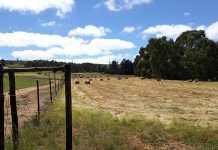
Modern agricultural equipment provides reliable service as long as it’s properly maintained. Crop farmers know that they must take care of the health of their soil, while livestock farmers have to look after their animals.Why is it that farmers molycoddle their crops, animals and machinery, yet neglect to maintain their most important resource: their own physical and mental well-being and there stress?
A recent New Zealand study cites the following as among the main causes of mental stress in farmers: workload (too much to do in too little time); financial pressure; the weather; and unreasonable personal expectations and goals.
These factors are also present in South Africa, where additional stressors include a largely hostile government, the ever-present threat of farm attacks, and the drought – the true effects of which will only be visible in coming months.
All this is enough to give anyone stress. Now add the fact that farmers are price-takers both on the input and output side, and that they do not get a fair share of the consumer’s rand.
Danger signs
This is not a medical column, but it’s worth listing some of the signs of severe stress that farmers and their families and friends should look out for.
- A feeling of being unable to cope, and continuous anxiety;
- Lack of energy and interest in previously enjoyable activities;
- Mood swings;
- Excessive worry about minor issues;
- Inability to concentrate;
- Significant changes in normal sleeping and eating patterns.
While many of the causes of stress are beyond our control (such as the drought), there are a number of things that farmers can do to limit this.
Failure to achieve unrealistic goals has been found to be a major source of stress among farmers. Remember the SMART acronym – goals must be Specific, Measurable, Realistic and Achievable within a specific Time frame.
Financial stress
This is a constant companion for many farmers. Crop farmers invest more than the per-hectare value of cropland to plant a hectare of maize or wheat, thereby putting the survival of their business on line with every crop.
Yet financial stress can be limited – with careful planning, realistic budgeting and regular monitoring. Seek counsel from your banker, accountant and advisors to maintain a balanced perspective. For example, do not push a cash-flow budget to a level that will satisfy the bank manager temporarily, only to cause problems later on.
Keep your creditors informed and arrange for deferred payments if needed as soon as it becomes clear that initial commitments will not be met. Remember that only those with very large cash reserves can afford to ignore the futures markets and yield insurance schemes.
Managing stress
Farming is a stressful occupation – in South Africa or anywhere else. The first step in managing stress and depression is to acknowledge it. This is difficult for many farmers to do, not least because they pride themselves on their self-sufficiency. But it has to be done.
As it’s often impossible to remove the cause of the stress, the next step is learning to manage your reaction in these situations. Take a step back and objectively examine whatever is causing the stress. Discuss and share problems with partners. Develop a plan to minimise the things that stress you the most.
Eat well, exercise and get enough sleep. Take some time out; get away from the farm every now and again. Treat yourself – do some fun things with friends. And don’t be afraid to seek professional help.
This article was originally published in the 10 June 2016 issue of Farmers Weekly.




